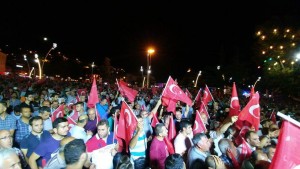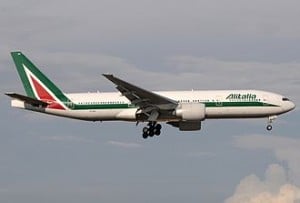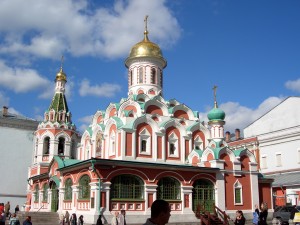Given a less spectacular landscape, I would probably have skipped the meal. Over the previous night – my first in Jordan – jet lag had left me just three measly hours of sleep. One morning of wandering, slack-jawed, around the ruins of Umm Qais, an ancient Greek hill city overlooking the Sea of Galilee and the Golan Heights, had used that up handily. When the tour bus carted us happy pilgrims away, I was already well conked out. The next thing I remember is Deacon Greg shaking my shoulder and telling me we were stopping for lunch, and me telling him to go jump in a lake.
I’m not sure whether I had the Sea of Galilee in mind specifically.
So they left me. The Jordan Tourism Board’s Christine Moore, who’d come along as trip organizer and den mother, loaned me a lovely neck pillow and promised me a doggie bag. But no sooner had I resumed counting sheep and goats than I felt the bus hurtle forward. Gravity picked me up and slammed me into the back of the seat ahead. Then the bus reversed course and began backing up, higher and higher. I had the sense of being trapped in an ancient roller coaster under the supervision of a methed-out carny. But no, I realized as I opened my eyes, this was still a state-of-the-art, WiFi-equipped tour bus. The driver was a professional well worth his baksheesh, doing what has to be done in order to park a heavy vehicle in the highlands surrounding the Jordan Valley.
After that, the only thing that could get me back to sleep was a heavy meal. When the thing finally ground to a halt, I flew out the side door and into the restaurant.
The gang was seated around several tables, pushed together. Dimly, I wondered how long it would take the staff to fill all our orders when hands began thrusting plates of hummus and salad into the small spaces between us. Apparently, the menu had been planned in advance – score another for guided tours. Our tour guide, Ra’ed, seated at my right hand, narrated the meal. The flatbread, he explained, was not pita, but a Jordanian specialty traditionally baked over rocks. I noticed only that it was supple enough to hold great gobs of hummus, which happened, at the moment, to be exactly what I was looking for in a flatbread.
As I stuffed my face, Ra’ed told us that the restaurant had once been a private house “in the Umayyad style, like most of the buildings around here.” Squatly constructed from a pile of rough stones overhung with bougainvillea, it featured high, arching ceilings. An ancient date palm grew from inside the courtyard. Off the path leading to the front door, the ground dropped straight down into a valley choked with dandelions. At the bottom was a double row of classical-style columns.
“At first archaeologists thought that might date back to the Jewish revolt of AD 70,” Ra’ed said sadly. “But now they think it’s sixth-century, from the time of Justinian.”
The excavation belonged to Pella, one of the ten cities that made up the Decapolis, settlements so ancient that any building contemporaneous with the Hagia Sophia looks like a parvenu in their company. Still, the columns made a better view than anything I’d seen from the porch of a P.F. Chang’s.
Then, in the place before me, there materialized a fish. Fried black, its head, tail, and fins were still attached. Glancing around, I saw similar specimens on either side of me. I was not meant to share this fish; he was nobody’s but mine. He seemed to have an awful lot of bones. But as I dug into him with my fork, his thick, white flesh cooperated by falling off them. In his skin, I tasted fresh butter.
“We call it ‘St. Peter’s fish’,” Ra’ed said. “It’s a sweet water fish. It could have come from the Sea of Galilee.”
“Mmmmph,” I said. Delicacy conquered, I was scooping up bits of fish with my fingers – not too differently, it occurred to me, from the way Peter himself might have gone at his. I pictured Jesus rapping the future pope’s knuckles and ordering him, “Slow down, for Chrissakes.”
Just as I’d reduced my fish to a flimsy skeleton, another, whole and entire, appeared in its place. “You did so good with that one, I ordered you another,” said Ra’ed. Jordan Valley food is not Chinese food; I felt no providential freeing-up of space in my stomach. It was with a conscious act of will, and a sense that honor was at stake, that I packed in this new fish, fistful by fistful. How I managed to get him all in – and a bowl of rice pudding on top of him – is a question best left to God.
Back on the bus, I assumed a fetal position. As the driver stuck the curves deep into the valley, guiding us past more Umayyad-style houses and ancient date palms, I conked out again. This time I got to stay conked out, all the way back to Amman. If Ra’ed had anything interesting to say, I must have missed it, but after that meal, something tells me he was pretty well conked out himself.











